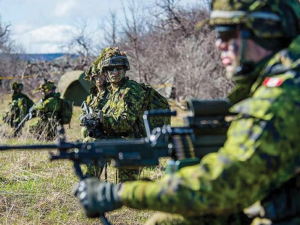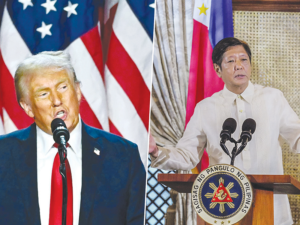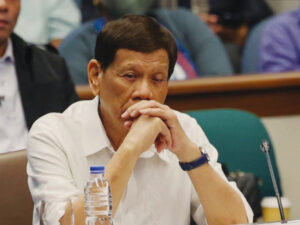I was in the Philippines in 1986 when then President Cory Aquino ordered the release of hundreds of political prisoners, and among them were Jose Maria Sison, Edicio de la Torre, and Bernabe Buscayno. I was a young human rights worker then and I saw political detainees getting out of the vehicles that had picked them up from their prisons to bring them to the Task Force Detainees human rights office, how they were met by families, friends, and supporters with smiles, hugs, applause and tears. I have never forgotten those images.
In the last couple of weeks, I watch happy and teary-eyed from Vancouver, the footage of the first batch of political prisoners, 22 consultants of the National Democratic Front of the Philippines (NDFP), recently freed on orders of the Duterte government. They were met with handshakes, hugs, and tears and they held their first press conference in the human rights office of Karapatan. I follow the news of these released detainees and see photos of them bidding their friends goodbye at the airport to go to Norway to take part in the peace talks. Hopefully, this will be the first batch of releases and that the rest of the political prisoners all over the country will be freed very, very soon. At around the same time, the NDFP in Mindanao ordered the release of two prisoners of war as goodwill measure for the resumption of the peace talks.
Thirty years ago, the first peace talks under the Aquino regime began but only to be cut short so quickly when the military under Cory Aquino fired and killed unarmed protesting farmers and peasants in a rally at Mendiola, known in the people’s history as the Mendiola massacre. Neither the Cory government nor succeeding governments have brought the guilty parties to justice. The peace talks collapsed, Cory Aquino closed down the opening of any democratic space and unleashed, in her own words, the “sword of war” in her counter-insurgency Operation Plan Lambat Bitag. Of course, the NDFP representatives went underground.
With the strong commitment of President Duterte on pushing the peace talks, the representatives from the GRP and the NDFP with the third party facilitation of the Royal Norwegian Government are back at the negotiating table. After decades of on- and-off peace negotiations, the current peace talks started on August 22 and reached agreement on six substantive major issues that raise the people’s hopes for a just and lasting peace. The two parties reaffirmed previously signed Agreements, reconstituted the JASIG (Joint Agreement on Security and Immunity Guarantees) list, agreed to the acceleration of the talks, the release of political prisoners with an amnesty proclamation, and on the mode of ceasefire in the interim.
Talking peace is an acknowledgement that there is a civil war that has been going on in the Philippines since 1969. Talking peace to address the root causes of the economic, social and political crises and to better understand the reasons behind the armed conflict may be the best way in forging a political settlement that will improve the well-being of the Filipino people.
Migrante International, the biggest organization of overseas Filipinos worldwide, welcomed the peace talks and stated that it “trusts the peace talks to tackle the root causes of the armed conflict, namely, unemployment, low wages, contractualization, landlessness and poor social services resulting in widespread poverty of the Filipino people. These are the very same reasons for the phenomenon of forced migration, or the impetus of millions of Filipinos to seek employment abroad.”
Let us be clear. It is not just peace that Filipinos aspire for, it is for a just and lasting peace. As Luis Jalandoni, the Chair of the NDFP Negotiating Panel declared on the fourth day of the peace talks on August 25, “…based on addressing the roots of the armed conflict, through genuine land reform, national industrialization and other fundamental social, economic and political reforms, we shall work and struggle together to achieve a just and lasting peace.”
It is possible to make peace and justice a reality in our lifetime. Alone, we will not be able to do it but collectively as a people, we will.
Join the JustPeacePH http://justpeace.ph which is an international platform of individuals, and organisations worldwide in support of the Philippine peace process. Or join other overseas Filipinos in the Kababayan For Change (@kababayan4change) movement https://www.facebook.com/Kababayan4Change/.
Tinig Migrante by E. Maestro







